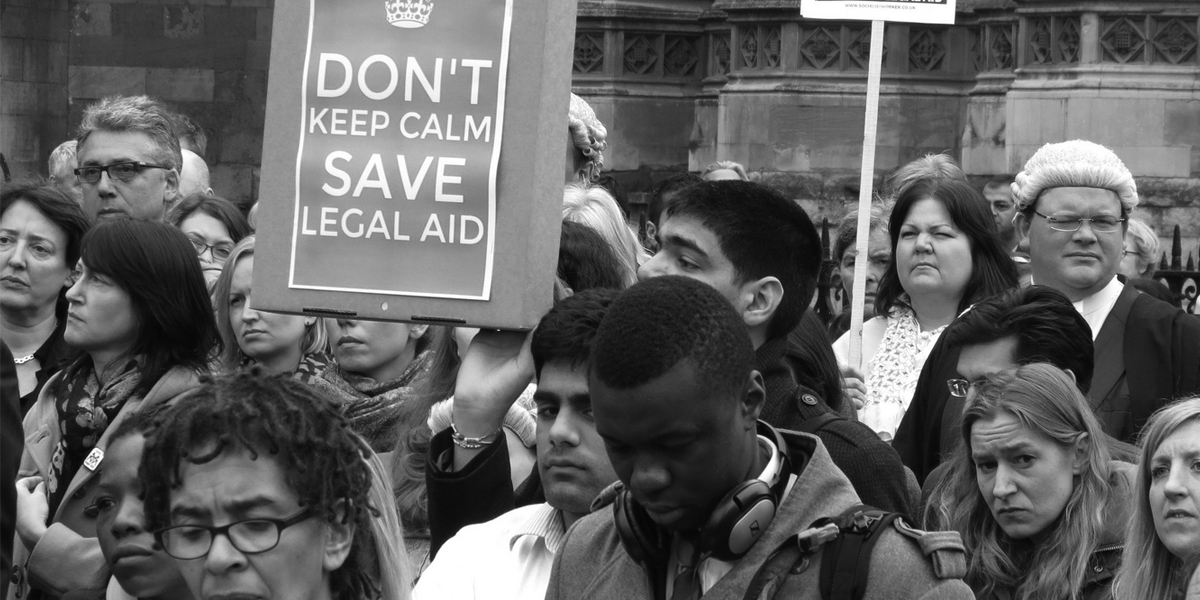We all make mistakes: Legal aid under threat
Many of the children and young people our legal team work with have made terrible mistakes. That is not to belittle the impact of those mistakes on their victims. A great number of the children I have worked for have...
Many of the children and young people our legal team work with have made terrible mistakes. That is not to belittle the impact of those mistakes on their victims. A great number of the children I have worked for have been deemed officially dangerous by the time they are 15 years old – an age which would not qualify for criminal responsibility in many countries.
Yet without exception, when I sit down to work on their cases, I see a catalogue of mistakes preceding their own – mistakes by virtually every adult and institution they should be able to respect and trust. The saddest thing is that these children tend to expect nothing more: their expectations of everyone and everything are as low as can be.
The children we work for are stronger than I could ever hope to be. How would you cope if you, or your child, were told that even though you had complied with everything asked of you and truly changed, you had no chance of being released from jail because no-one will pay for somewhere suitable for you to go? How would you cope not only with the death of someone close to you but being unable to go to their funeral or be close to their loved ones at a time of great loss? Have you ever spent 23 hours locked up in a tiny room with nothing to do and no one to talk to?
We all go through hard times, but we are allowed the luxury of coping badly from time to time – snapping at someone we love, slamming a door. But for young people in jail there is nobody they love to snap at and they are not allowed to open doors, let alone slam them.
The fantastic thing about the law is that it recognises that we all make mistakes but that we can reasonably expect mistakes to be put right. The only problem is that the law has started to be seen by the young people we work for as something simply there to punish them. They have no idea that its primary purpose is fairness for everyone and that they have as much right to use it as anyone else.
At a recent public legal education seminar run by the Howard League, Samantha Jones, who spent her teenage years in jail described the seminar as “unlocking the secrets of the care system”. The whole point of the Children Act was that it was to be generous in spirit, to reach out and protect children in need and at risk. Yet its benefits have become jealously guarded secrets, released only under threat of litigation for children perceived to be somehow undeserving.
That is where legal aid comes in. It allows our team here at the Howard League and hundreds of other dedicated lawyers to represent people who would otherwise have no voice. With help from legal aid, we have been able to make sure children can be released from prison with the support they need to start afresh and make sure children have access to courses in prison that will help them understand why they did what they did.
But this work is under threat. On 5 September 2013, the Ministry of Justice announced that it will proceed with drastic cuts to criminal legal aid for prison law for certain types of work and would consult further on fee cuts. The proposed cuts to the already low fixed fees will mean that doing complex work is not even cost neutral. Further consultation closes on 1 November 2013.
The announced cuts will greatly reduce the type of work we can do, from making sure children have suitable accommodation and support when they are released, to getting them on the right courses to understand why their crime was wrong. These are things that go to the heart of what the government says it cares about most: rehabilitation and public safety. They are also things that have made a real difference to our clients’ lives.
Laura Janes is co-legal director and consultant solicitor for the Howard League for Penal Reform
